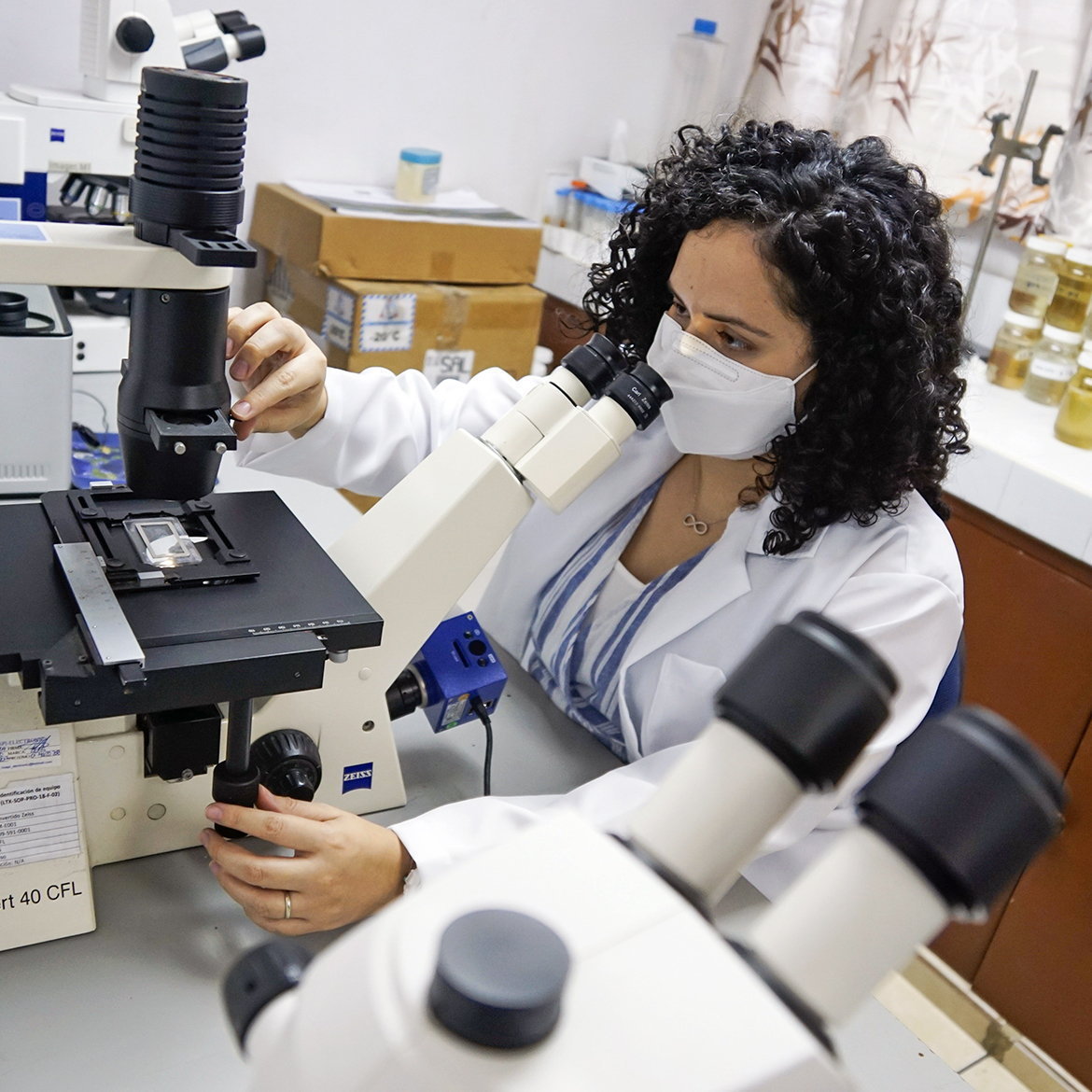Binyamin Netanyahu promised “safe passage” to civilians ahead of a planned assault on Rafah, in the south of Gaza. Israel’s prime minister described the city as Hamas’s “last bastion” and claimed that “victory is within reach”. On Saturday Israel’s army said it had found a Hamas tunnel under the Gaza headquarters of a UN agency. UNRWA, which aids Palestinian refugees, said it had not used the compound since October and was not aware of activity there. It is already reeling from allegations that some of its staff were involved in Hamas’s assault on Israel on October 7th.
Donald Trump said he once told a NATO member state that America would not protect members of the military alliance from attack by Russia if they did not pay their way. The former president added that he would even “encourage” Russia to do “whatever the hell they want” to “delinquent” members. A White House spokesperson called his comments “appalling and unhinged”.
The party of Imran Khan, a jailed former prime minister, alleged that election officials had meddled in Pakistan’s general election on Thursday. They urged supporters to protest. Tehreek-e-Insaf, the political party which Mr Khan founded, won the most seats but fell short of a majority, according to incomplete results. America, Britain and the European Union separately expressed concern over Pakistan’s electoral process.
The candidates for the presidency of Indonesia ended their campaigns at rallies attended by many thousands of supporters. The vote itself does not take place until February 14th, but the three men looking to replace the immensely popular Joko Widodo are not allowed to campaign after Saturday. Our poll tracker suggests Prabowo Subianto, whose running mate is the incumbent’s son, will win just over half of the votes.
Guyana said that Venezuela’s army was making movements near the countries’ shared border. Such actions would breach the terms of an agreement signed by the South American states in December to solve a row that erupted after Venezuela threatened to annex a sizeable portion of its neighbour’s territory. Massive amounts of oil have been discovered off the coast.
A Russian drone attack on Kharkiv, Ukraine’s second-largest city, caused a petrol station to catch fire, killing at least seven people, including three children. Ukraine said it had been able to shoot down 23 of the 31 drones launched overnight towards Kharkiv and Odessa, farther south. The long-range aerial battle has taken on additional prominence in Ukraine given the relative stalemate on land.
A second football match in China involving the Argentine national team was cancelled because of Lionel Messi. To the disappointment of myriad Chinese fans, the Argentine star failed to play in a friendly club match in Hong Kong last weekend, blaming injury. But he played a few days later in Japan, and in response, two Chinese sports associations have now cancelled two games that they were due to host in March between Argentina, Nigeria and Ivory Coast.
Word of the week: Atmospheric rivers, a storm system that wreaked havoc in California this week. Read the full story here.

NATO flexes its muscles
Since Russia invaded Ukraine for the first time in 2014, NATO has held ever more ambitious exercises. The latest series, Steadfast Defender, which began in January and runs until the end of May, is no exception. It involves 90,000 troops, 80 planes and 1,100 vehicles from all 31 allies plus Sweden, which is seeking to join the alliance. Agile Defender, a British exercise included in the series, begins on Sunday.
Steadfast Defender aims to “refine and test” NATO’s formal defence plans, which were agreed on at last year’s summit in Lithuania. Until March the emphasis is on reinforcement across the Atlantic and the Arctic. The second phase will concentrate on deployments from the Arctic to Europe’s eastern front, which stretches from Estonia to Bulgaria. The scenario for the exercise is fictional. But, with NATO generals openly musing on the risk of war with Russia in the coming years, the stakes seem higher than they have been for decades.

Finland’s presidential election
Finland has seen a lot of change lately. The country’s border with Russia turned hostile, it joined NATO, and it replaced a left-wing government with a right-wing one. But when Finns vote for a new president on Sunday they will choose between two familiar faces. Alexander Stubb of the governing centre-right National Coalition party has served as foreign minister, finance minister and prime minister. Pekka Haavisto of the Green League is a former foreign minister who is running for the third time, having lost twice to Sauli Niinisto, the retiring president.
Finnish presidents are responsible for foreign and defence policy. Russia’s looming threat has united Finnish opinion in those areas, and the candidates’ differences are fairly minimal. Mr Haavisto opposes letting American nuclear weapons transit through Finland. Mr Stubb is a vigorous economic liberal. Both back the EU and Ukraine. The brash, smiling Mr Stubb has the upper hand: a poll by the state broadcaster put him ahead 54% to 46%.

Tackling the gender gap in science and AI
Sunday marks the International Day of Women and Girls in Science. This week the United Nations honoured the occasion with an assembly in New York, focused on the promotion of women in science leadership. Despite some progress, the gender gap persists across science, technology, engineering and maths (STEM), particularly at the top. In Europe only 11% of senior researchers are women. In America women make up 28% of professors in STEM, and are paid less than their male colleagues.
The march of artificial intelligence will probably widen inequalities. Several studies suggest that women are more likely than their male counterparts to lose their jobs because of AI. That is largely because they work disproportionately in sectors thought to be vulnerable to automation, such as health care and education. Supporting more women to work in the AI industry might be helpful. They only hold around 30% of jobs in the sector globally.

The Super Bowl heads to Sin City
In 2018 America’s Supreme Court lifted a federal ban on sports betting. One consequence has been the acceleration of Las Vegas’s emergence as a sporting hub. Sin City’s association with gambling had long deterred team owners from relocating there. Times have changed. In 2018 the city gained the Aces, a Women’s National Basketball Association team; in 2020 it became home to the Raiders, a National Football League franchise; and in 2023 it hosted a Formula 1 grand prix. It also has a top-level ice-hockey side, and may soon add baseball and men’s basketball franchises.
On Sunday the city hosts the biggest event in American sports: the Super Bowl. The run-up to the match between the Kansas City Chiefs and the San Francisco 49ers has been dominated by conspiracy theories about Taylor Swift, a pop megastar who happens to be the girlfriend of a Chiefs player. Still, the occasion will help Vegas on its way to becoming America’s sporting capital.

Weekend profile: Prabowo Subianto, Indonesia’s TikTok presidential candidate
Nearly four-fifths of Indonesians own smartphones. Prabowo Subianto, the favourite to prevail when the world’s third-biggest democracy goes to the polls on February 14th, thinks the key to winning their votes is winning their social-media likes. So the 72-year-old former general is rebranding. On TikTok he is a cute grandpa who loves his cat, Bobby, and dances terribly. But he is also dancing around a dark past, one that few young Indonesians either know or care about.
Mr Prabowo was born into a wealthy family but spent his childhood in exile. His father, one of Indonesia’s greatest economists, fled a corruption investigation in 1957. The family bounced from Britain to Singapore to Switzerland. A young Mr Prabowo eventually came home and joined the army. He rose to command the Kopassus, Indonesia’s special forces.
Marrying the daughter of Suharto, Indonesia’s late dictator, helped him remain rich and powerful. Mr Prabowo did his father-in-law’s dirty work—including allegedly ordering the kidnapping of more than 20 democracy activists, of whom 13 remain missing, in 1998 (he denies wrongdoing). Suharto’s regime fell soon after. The army expelled Mr Prabowo, who split from his wife and again fled Indonesia. He regards himself as a victim of reformasi, the era of democratic reform that followed.
But he returned and in 2008 set up his own political party. Having unsuccessfully run for president twice before, he has abandoned his dictator-chic safari suit and toned down his often hysterical speeches. Now he wears business attire and speaks more softly—like Joko Widodo, or Jokowi, Indonesia’s wildly popular outgoing leader, who recruited him as defence minister in 2019. Mr Prabowo has also embraced “Jokowinomics”—infrastructure-led development—and made the current president’s son his running mate. Jokowi hopes to maintain influence through Mr Prabowo; Mr Prabowo hopes to ride Jokowi’s popularity to victory.
The former general is polling above the 50% of the vote needed to avoid a run-off election in June. Some worry he could further damage Indonesian democracy, which has retreated under Jokowi. Mr Prabowo has said Indonesia needs an authoritarian leader. Rivals complain that young voters are now more interested in social-media gimmicks than policies. The cute grandpa’s followers seem too busy scrolling to care.
'The World in Brief - with vocab.' 카테고리의 다른 글
| Feb. 29 update (0) | 2024.02.29 |
|---|---|
| Feb. 20 update (0) | 2024.02.20 |
| Feb 5 update (0) | 2024.02.05 |
| Jan 30 update (1) | 2024.01.30 |
| Jan 22 update (0) | 2024.01.22 |